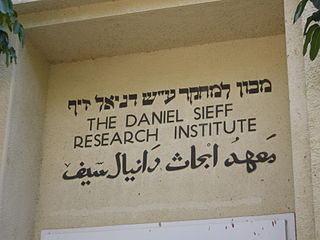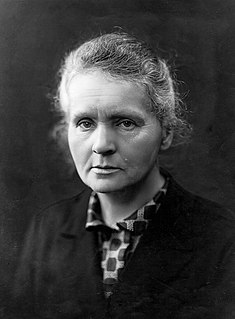This article contains links to lists of scientists.

Environmental science is an interdisciplinary academic field that integrates physical, biological and information sciences to the study of the environment, and the solution of environmental problems. Environmental science emerged from the fields of natural history and medicine during the Enlightenment. Today it provides an integrated, quantitative, and interdisciplinary approach to the study of environmental systems.

The Weizmann Institute of Science is a public research university in Rehovot, Israel, established in 1934, 14 years before the State of Israel. It differs from other Israeli universities in that it offers only postgraduate degrees in the natural and exact sciences.

The Organization for Women in Science for the Developing World (OWSD) is an international organisation that provides research training, career development and networking opportunities for women scientists throughout the developing world at different stages in their career. It was founded in 1987 and was officially launched in 1993. The organisation was formerly known as the Third World Organization for Women in Science (TWOWS). It is a program unit of UNESCO and based at the offices of The World Academy of Sciences in Trieste, Italy.

The L'Oréal-UNESCO For Women in Science Awards aim to improve the position of women in science by recognizing outstanding women researchers who have contributed to scientific progress. The awards are a result of a partnership between the French cosmetics company L'Oréal and the United Nations Educational, Scientific and Cultural Organization (UNESCO) and carry a grant of $100,000 USD for each laureate. This award is also know as the L'Oréal-Helena Rubinstein Women in Science Awards.
This discusses women who have made an important contribution to the field of physics.
The following outline is provided as a topical overview of science; the discipline of science is defined as both the systematic effort of acquiring knowledge through observation, experimentation and reasoning, and the body of knowledge thus acquired, the word "science" derives from the Latin word scientia meaning knowledge. A practitioner of science is called a "scientist". Modern science respects objective logical reasoning, and follows a set of core procedures or rules to determine the nature and underlying natural laws of all things, with a scope encompassing the entire universe. These procedures, or rules, are known as the scientific method.
The 1851 Research Fellowship is a scheme conducted by the Royal Commission for the Exhibition of 1851 to annually award a three-year research scholarship to approximately eight "young scientists or engineers of exceptional promise". The fellowship is open to all nationalities and fields of science, including physical or biological sciences, mathematics, applied science, and any branch of engineering. The fellowship can be held anywhere in the United Kingdom.

This is a list of women chemists. It should include those who have been important to the development or practice of chemistry. Their research or application has made significant contributions in the area of basic or applied chemistry.
Nashwa Abo Alhassan Eassa is a nano-particle physicist from Sudan. She is an assistant professor of physics at Al-Neelain University in Khartoum.
Taiwo Olayemi Elufioye is a Nigerian pharmacologist and researcher. Elufioye works as a professor at the University of Ibadan in the department of pharmacognosy. Elufioye is also a Fulbright Scholar at University of the Sciences in Philadelphia, PA, where she is investigating drugs for neurodegenerative diseases.
Rabia Salihu Sa'id is a Nigerian physicist, professor of atmospheric and space-weather physics, and a researcher at Bayero University Kano. She conducts research in atmospheric and space weather physics, particle physics, and electronics. Sa'id is an advocate and mentor for young women in science with the Visiola Foundation and Peace Corps; she co-founded Nigeria's Association of Women Physicists. She is an advocate and mentor of Science, technology, engineering, and mathematics (STEM) education and is a facilitator for the British Council's Active Citizens' Programme.
Eqbal Mohammed Abdu Dauqan is a Yemeni-Malaysian biochemist known for her studies of nutrition, advocacy for refugees, and support of women scientists in her home country of Yemen and adopted country of Malaysia.
Sushila Maharjan is a Nepalese biochemist and biotechnologist who is the research director at Nepal's Research Institute for Bioscience and Biotechnology which she co-founded in 2011.

This is a timeline of women in science, spanning from ancient history up to the 21st century. While the timeline primarily focuses on women involved with natural sciences such as astronomy, biology, chemistry and physics, it also includes women from the social sciences and the formal sciences, as well as notable science educators and medical scientists. The chronological events listed in the timeline relate to both scientific achievements and gender equality within the sciences.






